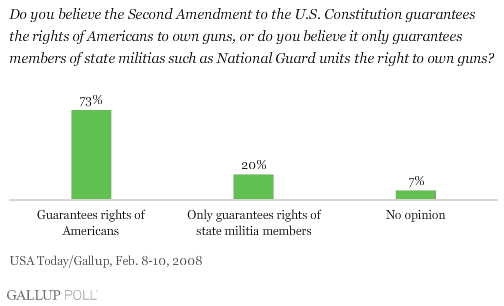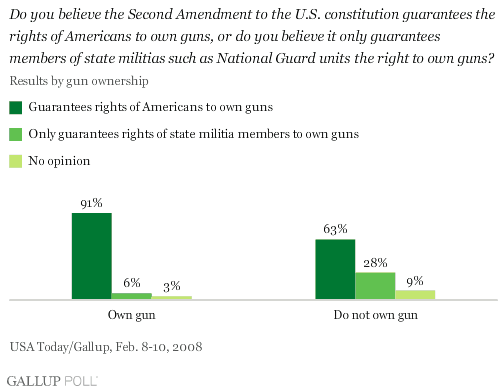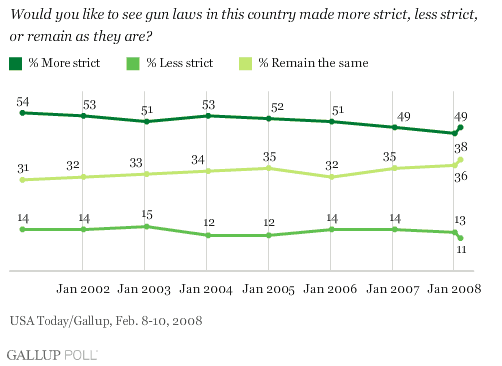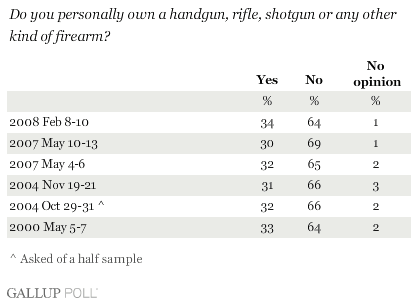PRINCETON, NJ -- The Supreme Court's ruling on Thursday that a District of Columbia ban on handgun ownership is unconstitutional appears to be solidly in step with public opinion. A clear majority of the U.S. public -- 73% -- believes the Second Amendment to the Constitution guarantees the rights of Americans to own guns. And almost 7 out of 10 Americans are opposed to a law that would make the possession of a handgun illegal, except by the police.

The practical outcome of the case was to overturn a Washington, D.C., handgun ban. In general, the public opposes sweeping bans on handguns. In the most recent �鶹��ýAV Crime Poll, conducted last October, except by police and other authorized persons, by 68% to 30%.
The larger issue in the case centered on whether the Second Amendment to the Constitution was intended to protect the rights of individual Americans to own guns, or only those who are members of state militia groups.
The precise language of the Second Amendment reads:
A well regulated militia, being necessary to the security of a free state, the right of the people to keep and bear arms, shall not be infringed.
The Supreme Court's ruling today takes the view that the Second Amendment does confer on Americans who are not members of militias the right to own guns.
Gun owners (the roughly one-third of the U.S. adult population who say they personally own a gun) are nearly universal in endorsing the view that the Second Amendment guarantees their right to own guns. Non-owners are less likely to view the amendment this way, but a majority still do.

While the American public backs the view that gun ownership is a constitutional right, Americans favor having legal restrictions on it. In the same poll, 49% favor stricter gun laws than exist now and 38% would like to see gun laws remain as they are. Just 11% advocate gun laws that are less strict.

Survey Methods
Results are based on telephone interviews with 1,016 national adults, aged 18 and older, conducted Feb. 8-10, 2008. For results based on the total sample of national adults, one can say with 95% confidence that the maximum margin of sampling error is ±3 percentage points.
For results based on the sample of 373 gun owners, the maximum margin of sampling error is ±6 percentage points.
For results based on the sample of 630 gun non-owners, the maximum margin of sampling error is ±4 percentage points.
Other results are based on telephone interviews with 1,010 national adults, aged 18 and older, conducted Oct. 4-7, 2007. For results based on this sample, one can say with 95% confidence that the maximum margin of sampling error is ±3 percentage points.
Interviews are conducted with respondents on land-line telephones (for respondents with a land-line telephone) and cellular phones (for respondents who are cell-phone only).
In addition to sampling error, question wording and practical difficulties in conducting surveys can introduce error or bias into the findings of public opinion polls.
To provide feedback or suggestions about how to improve �鶹��ýAV.com, please e-mail feedback@gallup.com.

